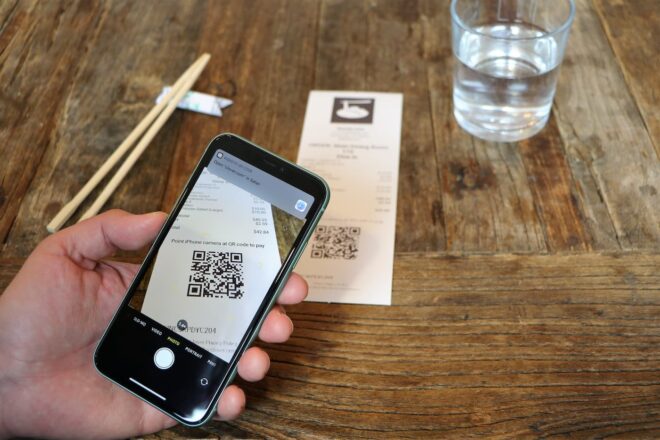How to finance a restaurant
Editorial Team
6 min read
Anyone can dream about opening a restaurant; however, turning those dreams into reality can be difficult. Some entrepreneurs pour their life savings into getting a venture off the ground. You might decide this is the best approach for you, but before dipping into your bank account, it may be worth exploring some of the other financing options restaurateurs use to make their dreams come true.
What is restaurant financing?
Broadly speaking, restaurant financing is the capital you secure to cover any number of startup or ongoing expenses.
- When financing a new restaurant, this money may go towards venue leasing, equipment procurement, interior decoration, etc.
- More established restaurants might use funding to pay for renovations, rebranding, or expansions
- In the age of COVID-19, restaurants (old and new) must increasingly upgrade their operations to help ensure a safer dining experience for patrons (and the employees who serve them). Be sure to read our article on designing restaurant floor plans that help promote social distancing
What types of financing are available?
Because the average startup costs for a new restaurant range between $275,000 and $425,000, it’s not uncommon for potential owners to acquire funding from multiple sources.1 Below are some of the most popular restaurant financing options worth exploring.
1. Credit cards
For some businesses, credit cards are the go-to for short-term funding needs. Here’s why you may want to add them to your arsenal of financing tools:
- Business credit cards are easy to use
- If already approved, access to money is instant
- Collateral isn’t normally required for revolving credit
However, you can expect to pay a premium for this convenience in the form of higher interest rates. In addition, some credit cards may have relatively low spending caps, which limits their use for major startup costs. As such, credit cards may be best for short-term needs, such as marketing and advertising expenses.
2. Restaurant loans
Another popular financing option involves securing restaurant loans through a traditional lending institution or the U.S. Small Business Administration. These longer-term loans are typically approved for higher amounts and offer flexible repayment schedules spread over many years.
Just as with credit cards, restaurant loans require that the borrower pays interest. The rate you pay will depend on several factors, including your credit worthiness, your ability to repay, and what kind of collateral you can offer. Moreover, the exact process for how to get a loan to start a restaurant can vary considerably from lender to lender. There’s often a lot of paperwork involved when applying with different institutions.
Restaurant loans can be useful for major projects. Though if you need access to money fast – or if you have spotty credit history – you might benefit more from another financing option on this list.
3. Merchant cash advances
Instead of making monthly repayments out-of-pocket, you send the cash advance provider a percentage of all future dining sales until the balance is repaid.
One advantage of this financing approach is that repayments are on autopilot – requiring zero maintenance. That’s because the money is automatically deducted and sent to the cash advance provider through the ACH Network (which is the same electronic platform employers use for direct deposit payroll).
To qualify for cash advances, you often have to be in business for a minimum amount of time with a proven track record of steady sales. As such, this option isn’t usually suitable for startup restaurants.
4. Friends and family
Tapping into your social circle is often the least expensive option – especially if folks “gift” you the funds. However, sometimes mixing business with personal life can be complicated. Whether or not to explore this option is ultimately an individual decision, but if you do decide to go this route, formalize the loan with a contract that will help set clear expectations on repayment terms and how much say the family member or friend has in your business.
5. Crowdfunding
Crowdfunding is a relatively new form of financing in which you raise money from anonymous supporters of your business. Kickstarter and GoFundMe are two of the best-known platforms, but most crowdfunding communities work the same way:
- Your “fans” gift you the funds you need (collectively and in small amounts)
- In exchange, you offer any number of perks – from merchandise to VIP access to soft launch invitations
For crowdfunding to work, you must have a strong sales pitch that resonates with a lot of people. This can be to your advantage, since bank loan rejections and approvals often come down to one person (or algorithm).
Which restaurant financing option is right for you?
It pays to shop around and see what your options are. Again, many restaurant owners end up with a mix of funding sources. If you’re fortunate enough to qualify for several options, choose whatever combination offers the ideal blend of the following:
- Cost – i.e., whichever is least expensive after factoring in interest, application fees, penalties, and collateral
- Speed – i.e., whichever is easiest to obtain given your timeframe and financial goals
- Friction – i.e., whichever has the fewest “strings attached.” This is why friends and family may not always be the best funding source
How to finance a restaurant and grow your business
Once you’re up and running, stay on top of your finances with the right business management solutions.
Having the right POS system can help monitor your financial position as well as stay on top of any loan or credit card repayments. With Clover’s solutions, for example, you benefit from:
- Integrations with multiple accounting software programs that help you track sales and vendor payments all in one place.
- A suite of real-time analytics and actionable insights to help power your decision-making. This robust reporting allows you to track and analyze trends that impact every aspect of your business – including sales, payroll, refunds, top-selling items, and employee scheduling.
- PCI-compliant payment solutions specifically designed for the dining industry – whether you plan on opening a Quick-Service Restaurant or a Full-Service Restaurant. We also publish free business resources to help you achieve your startup (or expansion) dreams.
To learn more about our suite of payment solutions, analytic tools, and business insights for restaurants, contact us today for a free consultation.
This information is provided for informational purposes only and should not be construed as legal, financial, or tax advice. Readers should contact their attorneys, financial advisors, or tax professionals to obtain advice with respect to any particular matter.
1 “How much does it cost to open a restaurant,” Sage
Related Posts
How to help increase restaurant revenue with digital payment solutions
How to open a barber shop
Popular Topics
Stay In Touch
Sign up and learn more about Clover.
Thank you for your subscription!
Recent Stories
- Jewelry store supplies and equipment needed for opening day
- How small businesses can use employee discounts to retain staff
- Tips and tricks for opening an outdoor pop-up restaurant
Please share your contact information
to access our premium content.
Thank you for sharing your contact information.
Download Now





